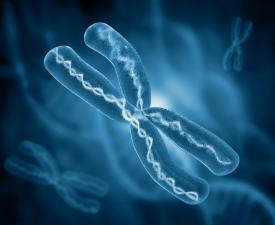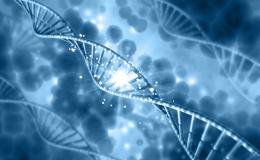Your Genes Impact Your Holiday Celebrations
December 29, 2020
The holidays are typically a time for us to gather together with (or avoid) extended family. And regardless of whether or not you are able to celebrate with extended family during our less-than-typical holiday season, the genes you may or may not share with your relatives play a larger role than you might realize in your holiday celebrations.

In fact, it turns out that your fondness or distaste for Aunt Connie’s (in)famous artichoke dip may actually be coded in your genes. Your ability to handle those glasses of eggnog? That’s genetic, too. Even the pain reliever that works best for your headache after a little over-celebrating on New Year’s Eve is dictated by your genes.
To better understand the link between genetics and diet, a research team from Italy recently performed a study linking variations (changes in the genetic “spelling”) in different genes with various food preferences.1 The study analyzed the DNA of 4,000 subjects in Italy, other European countries and Central Asia and assessed the degree to which each subject enjoyed 42 different foods. The group found a significant link between specific genetic variations and preferences for the following 14 different foods:
- Artichokes (three genes)
- Bacon
- Blue cheese
- Broccoli (two genes)
- Butter or oil on bread
- Coffee
- Chicory
- Dark chocolate
- Ice cream
- Liver
- Mushrooms
- Orange juice
- White wine
- Yogurt, plain
Perhaps the most interesting result of the study was that none of the genetic variants coded for smell or taste receptor genes, which would be some of the most obvious candidate genes affecting food preferences. An entirely new branch of science, nutrigenics, has developed to study the link between our genes and our food preferences and processing.
It turns out that alcohol tolerance is at least partially dictated by your genes as well. Alcohol is metabolized in the body by two primary enzyme families: alcohol dehydrogenases (ADHs) and aldehyde dehydrogenases (ALDHs). Just like the food-preference genes discovered by the Italian research team, the genes encoding the ADH and ALDH enzymes also have genetic variants, which change how effectively the enzymes metabolize ethanol.
Ingested alcohol is metabolized by ADH to acetaldehyde, and acetaldehyde is further metabolized by ALDH. Importantly, changes in the activity of ADH or ALDH can have a profound impact on alcohol tolerance. Women, for example, have a deficiency in one of the three components of ADH, glutathione-dependent formaldehyde dehydrogenase (FALDH), rendering ADH less efficient at metabolizing alcohol and resulting in a higher blood alcohol level.2 Additionally, some people have a genetic variant that produces nonfunctional ALDH2, leading to a buildup of acetaldehyde. Acetaldehyde causes skin flushing and can increase or worsen hangover symptoms. People of Asian descent are more likely to harbor the nonfunctional ALDH2 gene variant.3
Even people with a high alcohol tolerance are known to overindulge from time to time, often resulting in the dreaded hangover. It turns out that the effectiveness and side effects of popular over-the-counter pain relievers are also determined by our genetics, or pharmacogenetics, to be exact. Aspirin, for example, works by irreversibly inhibiting the COX enzymes, and people with an A to G “spelling” change at base 842 in the COX-1 gene have a decreased therapeutic response to aspirin.4 Additionally, variants of the CYP2C9 gene, whose gene product is responsible for ibuprofen clearance, can significantly lower clearance of the drug, increasing the risk of upper gastrointestinal bleeding,4 an established side effect of regular, high-dose ibuprofen usage.5
So this holiday season, we give you a little scientific food for thought: Our genes can influence our food preferences, our alcohol tolerance and our analgesic response in ways we might not have imagined even 30 years ago. And while it may not get you off the hook for skipping Aunt Connie’s artichoke dip this, or any future, Christmas, take heart in knowing your food aversions may have less to do with your aunt’s cooking and more to do with the genes variants you and your aunt don’t share.




